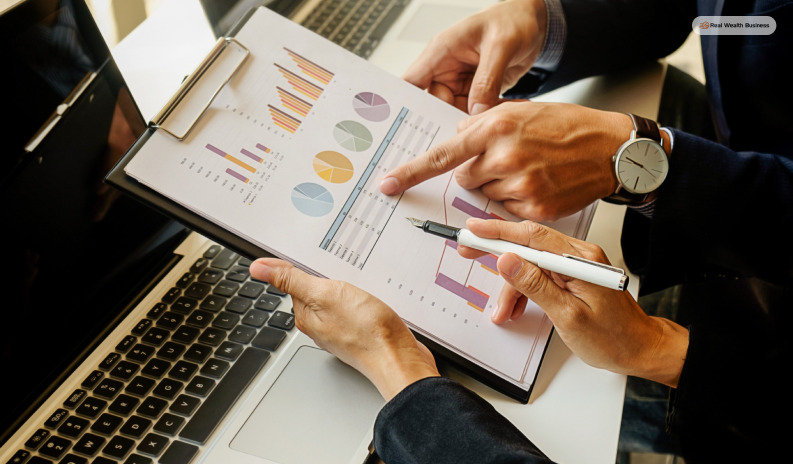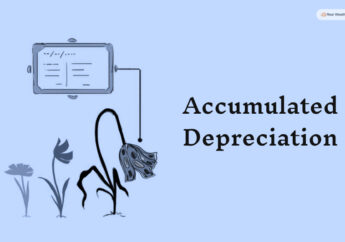What Are Expenses? Definition Of Expenses In Business, Economics, & Accounting
by Shahnawaz Alam Finance Published on: 15 September 2023 Last Updated on: 18 October 2024

As the word suggests, expenses literally mean spending money to acquire something. This is common for both personal needs and business needs.
For example, it can be someone purchasing a PS5 or a business purchasing some asset for running their operations. It is an essential aspect of someone’s personal finances; more so, companies need to track their performances. They usually have strict guidelines for what their different expenses are.
Go through this article to understand what are expenses and how they are dealt with in different settings.
What Are Expenses?
An expense is any amount of money for getting anything that involves paying money. Expenses can be for shopping for something, paying rent or mortgages, etc. These are some everyday living expenses for businesses to follow what they need to spend.
There are government expenses, a person’s own expenses, business expenses, and more. Here are a few different definitions of expense according to the different landscapes.
What Are Expenses In Business?
As per the general definition of expense, an expense is the cost of obtaining something. A business spends some amount to operate its business and generate revenue.
The definition of expenses is clearly outlined in business as well. There is a clear reason behind this. Businesses have the option to deduct some expenses from their taxes. So, The IRS (U.S. Internal Revenue Service) clearly outlines what is counted as an expense and what is not.
What Are Expenses In Accounting?
Accounting terms also define the word ‘expense’ very similarly to business. An operational cost is paid to earn business revenues.
In accounting terms, expenses are operational spending paid for revenue generation in a business. It suggests a cash outflow for acquiring specific goods and services. Accountants usually write expenses as a sum of operations that bring profit for a business.
What Are Expenses In Economics?

An expense is a business operation cost incurred in running a business operation. The expenses of different businesses include salaries, wages, maintenance, rent, and depreciation. Businesses usually deduct their expenses from their revenue to calculate their profit.
What Are Expenses In Personal Finance?
Expenses in personal finance include both fixed and variable expenses. Fixed expenses are usually mortgages, rents, etc. From a business perspective, the fixed expenses do not change with the change in production.
However, the variable expenses in personal finance tend to change month after month. It depends on how someone is handling their lifestyle. Some common examples of variable expenses in personal finance would be – dining outside, medical expenses, groceries, or things someone buys from the store.
How Do Businesses Report Expenses?
Businesses usually track expense reports for accumulating and tracking their expenses. Then, they have their accountants formally report those expenses through financial statements such as income statements.
However, business expense reports depend on the type of accounting process someone uses. The two different types of business accounting are cash-based and accrual-based accounting.
Accrual-based Accounting: This type of accounting involves recording the transaction when it occurs. This can also happen when the money has not been exchanged yet. If a business rents a resort for a business trip, they have to record the entire transaction as a business expense from the booking date. This is necessary, even if no money is charged.
Cash Basis Accounting: The cash basis business expense works opposite to accrual business accounting. Here, the expense is recorded after deducting the money from the business account. For example, if they have made a resort booking, the expenses will not be accounted for until the resort deducts money from the business account.
Different Types Of Expenses
Now that you know the answer to “what are expenses,” let’s dive into different types of expenses written as business expenses.
Operating Expenses
Operating expenses for a business are expenses that keep a business operational. These expenses include any operational expenses or day-to-day business expenses. In simple words, these are costs needed to keep the business’s core functions steady.
Non-Operating Expenses
A business also spends an amount of money that does not directly relate to the operational expenses. These expenses do not support the business’s day-to-day operations in any way. Some of these expense examples are something like interest payments or the exchange of currency.
Fixed expenses for a business do not change. These expenses stay the same irrespective of the business’ capability to produce within a month or a specific timeframe. Some common examples of fixed expenses include employee wages, rent, mortgages, loan payments, insurance costs, etc.
Accrued
Accrued expenses are expenses that a business has yet to pay. These expenses can be their fixed expenses such as mortgage or rent. For example, when a business is receiving raw material or any operational material for expenses, but they have not yet received any invoice from the seller. Here, the amount the business owes the seller is an accrued expense.
Variable
Variable expenses are the complete opposite of fixed expenses. These expenses change with time. For example, employee hourly payments, utilities costs, commissions on sales, shipping costs, and different raw materials. The costs related to the said examples do not always stay the same.
Prepaid
Prepaid expenses or cost expenses are complete opposites to accrued expenses. These expenses require the business to pay the cost before receiving the product or the service. So, when a business is paying for a material that has yet to be shipped, it can be written as a prepaid expense in the financial statement.
Bottom Line
Now that you know what expenses are, do you think you will be able to differentiate between variable and fixed expenses? Whether you need to follow your expense counts for your business or for personal needs, this article should be able to help.
Take it to the comment section and let us know what type of expenses you need to regulate to profit financially. Hopefully, this article was helpful. However, if you have any queries you need us to answer, you can comment on that as well. Thank you for reading.
Read Also:



































































































